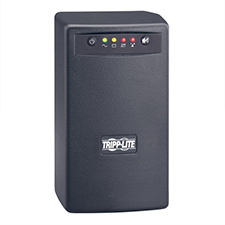
Ensuring Business Continuity: The Vital Role of Uninterruptible Power Supplies (UPSs) for Point-of-Sale (POS) Systems
Chuck Ross
I’m old enough to remember days when cash registers weren’t computerized – they used electricity but were otherwise pretty analog devices. But a lot has changed since the first computerized cash register – or, as retailers say, point-of-sale (POS) devices – was introduced in 1973. Over the decades, touchscreens, self-service kiosks and, more recently, the tablet-based approaches we’ve all come to loathe for their pestering over server tips, have become common elements in our daily shopping and dining experiences.
As it’s become increasingly sophisticated and networked, this equipment has also become much more tied into business’s accounting and inventory systems. This means a power outage or irregularity can do more than just force cashiers to do their own math – it can cause headaches across a retailer’s operations. This is why uninterruptible power supplies (UPSs) are becoming much more popular for stores and restaurants seeking to avoid POS downtime, or at least give them the time needed to shut systems down in an orderly fashion.
Most U.S. power outages happen during extreme weather events, according to the U.S. Energy Information Administration, and many businesses would be closed during those periods, anyway. But a UPS can be really helpful for other disruptions – like when an errant tree branch decides to fall on a nearby line or a car hits a local utility pole. Such unexpected outages can cause big headaches, even if they only last a short period, and they also can be damaging to the sensitive electronics running today’s POS equipment.
It's these short-duration events when a retail UPS can prove especially beneficial. If a small store or restaurant doesn’t have a whole-building backup generator, a POS UPS can help a register or tablet ride through the outage. And these products also often provide protection against power surges or other voltage irregularities. Their runtimes aren’t long, ranging from about 15 minutes down to less than 5 minutes, depending on their capacity and number of connected devices. But they can at least ensure that a transaction isn’t cut off while it’s still underway and that POS equipment can be safely shut down and be ready to go, again, once power is restored.
As it’s become increasingly sophisticated and networked, this equipment has also become much more tied into business’s accounting and inventory systems. This means a power outage or irregularity can do more than just force cashiers to do their own math – it can cause headaches across a retailer’s operations. This is why uninterruptible power supplies (UPSs) are becoming much more popular for stores and restaurants seeking to avoid POS downtime, or at least give them the time needed to shut systems down in an orderly fashion.
Most U.S. power outages happen during extreme weather events, according to the U.S. Energy Information Administration, and many businesses would be closed during those periods, anyway. But a UPS can be really helpful for other disruptions – like when an errant tree branch decides to fall on a nearby line or a car hits a local utility pole. Such unexpected outages can cause big headaches, even if they only last a short period, and they also can be damaging to the sensitive electronics running today’s POS equipment.
It's these short-duration events when a retail UPS can prove especially beneficial. If a small store or restaurant doesn’t have a whole-building backup generator, a POS UPS can help a register or tablet ride through the outage. And these products also often provide protection against power surges or other voltage irregularities. Their runtimes aren’t long, ranging from about 15 minutes down to less than 5 minutes, depending on their capacity and number of connected devices. But they can at least ensure that a transaction isn’t cut off while it’s still underway and that POS equipment can be safely shut down and be ready to go, again, once power is restored.
Photo courtesy of Tripp Lite by Eaton



